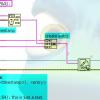Search the Community
Showing results for tags 'hierarchy'.
-
Hello everyone, I want to share a VI that I recently created to search for orphan files in a (very! ) messy project. As it turned out it's actually very easy to do that (if you find super-secret stuff on the net): This VI will find files (VIs, Controls, Classes, etc...) in your project folder that are not linked by a given top-level VI. This is done by comparing the call-chain of the top-level VI with the files on disk. It assumes your files are in folders relative to the specified root directory. This also means that files outside the hierarchy will be ignored (vi.lib and such). Be aware of (at least) two things: This VI will return false friends if you happen to have any "Open VI Reference" call with constant VI names or paths connected to it (not a problem if you use static VI references). VIs in diagram disable structures are not listed in the call-chain. So if you use conditional (or regular) disable structures this VI will return false friends. Does anyone know a solution to number 2. actually? Hope this proves useful to you too.
-
I have a hierarchy of classes. Call them Grandparent, Parent and Child. I have a dynamic dispatch VI in grandparent that child overrides. In the child implementation, I want to access data in the parent class control. The template in the grandparent has two inputs of type grandparent. The dynamic one and a static one. The dynamic one is used to dispatch to the correct child. (this is because grandparent has more than one parent sub class and these have more than one child subclasses) The static one is used to pass in a parent object so the child has access to its data between calls. (the child is actually a message not spawned from the original parent object and therefore does not contain this persistent parent data) What I need to do is cast the grandparent wire to the type of parent so I can access the parent's data. I could use the child to do this but how do I extract the parent class type from the child and use it to cast the grandparent to type parent? I need to do this statically as design time, not at runtime. thanks for any ideas. -John An alternative solution would involve having the child (message) object inherit the data in the parent object so I could access it via property nodes. Not sure if that is possible.


